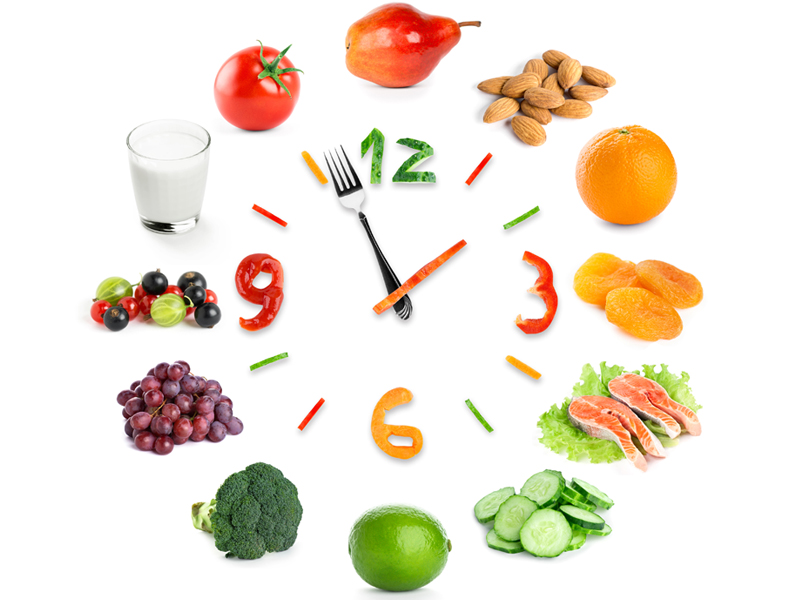Get Easy Health Digest™ in your inbox and don’t miss a thing when you subscribe today. Plus, get the free bonus report, Mother Nature’s Tips, Tricks and Remedies for Cholesterol, Blood Pressure & Blood Sugar as my way of saying welcome to the community!
The diet that helps you gain time

Diet. It’s a word that might turn a lot of people off. But it’s a word of many connotations…
I write about the Paleo diet most often… it’s a way of eating I’ve chosen to follow. I also write about diet in terms of foods that promote wellness because of their nutrient value or special compounds that fight disease (think superfoods!), and I’ve written some about dieting in terms of maintaining a healthy weight.
And that last way — the one that most often involves restricting certain foods or calories solely for weight loss — is how most people think of the word.
That’s why the idea of restricting your caloric intake for any other reason is very foreign to most us.
But another way to think about dieting, specifically caloric restriction, is in terms of longevity… as in how you eat increases or decreases your lifespan.
Of course obesity increases your risks of developing heart disease and diabetes — diseases that can shorten your lifespan.
But restricting your calories outside of a weight loss goal is something else entirely. And why would anyone, especially someone who is not overweight, choose to restrict their caloric intake?
For no other reason than to live longer. And the research says it works.
The diet full of gains
Calorie restriction — with proper nutrition — seems to help extend lifespans and delay the onset of age-related disorders by reducing what are called reactive oxygen species in the body. You might know them by the more familiar term… free radicals.
And what they do is pretty radical in a bad way. They cause oxidation, which is similar to what rust might do to a shiny new piece of metal. Free radicals eat away at cells and DNA causing damage and mutations that cause disease and premature aging.
When your cells age prematurely, so do you.
But what do calories have to do with any of this? A lot — and here’s one way that we know…
Researchers divided some mice into four dietary categories for more than a year: group one was fed a low-fat diet; group two was fed a low-fat with calorie restriction diet; group three was fed a high-fat diet; and group had a high-fat diet with calorie restriction.
They then used nuclear magnetic resonance analysis to examine the metabolic effects in blood and urine samples. The researchers found that calorie restriction had a much bigger effect on metabolic outcomes than the amount of fat in the diet. Mice on higher calorie diets had increased oxidative stress, disturbed lipid metabolism, suppressed glycolysis and altered gut-microbial metabolites compared to those on the calorie-restricted diets.
Another study that my colleague Dr. Mark Wiley has written about, showed that prolonged cycles of fasting protected against toxic effects of chemotherapy for cancer patients and triggered stem cell regeneration of new immune cells while at the same time cleared out of old, damaged cells.
I’ve also read that fasting causes human growth hormone levels to rise, providing protection for lean muscle mass — one of the first things we begin to lose after the age of 40.
Bottom line, if you can decrease you caloric intake, while maintaining good nutrition, you can reduce the oxidative stress on your body, burn energy more efficiently, balance hormone output better, promote a healthier gut microbiome, boost immune system health — and gain years of life.
Curtail your calories
The best way to cut down your calories is through intermittent fasting. And there are two easy ways to do it. The one I consider the absolute easiest involves ‘eating windows’— windows of time in which you go without food for 14-16 hours a day, but you sleep through most of it…
Many integrative doctors recommend eating your first meal late in the morning at 11 AM or even noonish, and having your last meal at 7 or 8 PM. Do not eat for at least three hours before going to sleep. The daily fast would last 16 hours.
Once you begin eating this way, it can quickly become a daily habit. But if you prefer, you can choose to eat normally five days a week and fast for two — hence the 5:2 diet…
You would go without food for 24 hours or limit your caloric intake to 500-600 calories. If you choose to follow this program, eat dinner one night, and then do not eat until dinner about the same time 24 hours later.
You can read more on intermittent fasting, here, including a full list of health benefits and foods and supplements that can support your fast.












